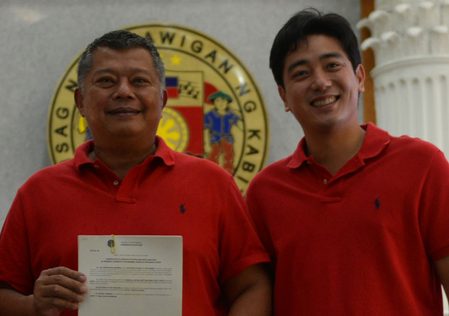SUMMARY
This is AI generated summarization, which may have errors. For context, always refer to the full article.
![[OPINION] The special election of the 7th District of Cavite: A welcome development](https://www.rappler.com/tachyon/2022/10/Screen-Shot-2022-10-30-at-12.08.36-PM.png)
On October 19, the Commission on Elections (Comelec) set for February 25, 2023, the special election for the representative of Cavite’s 7th District — a seat vacated by the now Justice Secretary Jesus Crispin Remulla.
This is the first time the Comelec has ordered the conduct of a special election, notwithstanding the fact that there were more than 10 vacancies in the past Congresses during the Duterte administration, most of which were entitled to the conduct of special elections, including the vacancy caused by the appointment of Mark Villar as Department of Public Works and Highways Secretary. While it could appear to some as special accommodation, the conduct of special elections to fill up the vacancies should be the general rule as opposed to leaving it vacant and appointing what is called as a district “caretaker” — a practice that is bereft of any legal basis and prone to abuse by the House Leadership.
Caretaking as a practice guided only by tradition
According to former speaker Feliciano Belmonte, Jr., the designation of a caretaker is guided only by tradition. Thus, “there are no hard and fast rules to observe.” However, based on interviews as well as how it was generally practiced, it would seem that the practice of caretaking follows a particular order, namely: (1) the House Speaker or his deputies; (2) the representative of the adjacent district; (3) the representative endorsed by other members of Congress, or the elected leaders of the local government units covered by the district; and (4) “reasonableness and common sense.”
The aforementioned order seemed objective, but certain appointments would reveal that the practice of appointing a caretaker is more political than anything. For instance, former speaker Belmonte appointed then Akbayan partylist representative Arlene “Kaka” Bag-ao as caretaker of Dinagat Island, who was the political rival of the former representative Ecleo, whose clan ruled the province for decades. Bag-ao’s appointment as caretaker ensured her victory as representative of Dinagat Island in the following elections and eventually as governor.
The current ‘process’ for conducting special elections
Republic Act (R.A.) No. 6645, the enabling law of the pertinent provision in the 1987 Constitution, provides:
“In case a vacancy arises…in the House of Representatives at least one (1) year before the next regular election for Members of Congress, the Commission on Elections, upon receipt of a resolution of…the House of Representatives, as the case may be, certifying to the existence of such vacancy and calling for a special election, shall hold a special election to fill such vacancy… ”
The conduct of special elections becomes hard as three things must happen first. First, there must be a vacancy. Second, the vacancy must occur within the time frame specified by law (at least one year before the next regular elections). Third, there must be an official communication on the existence of the vacancy and call for a special election by the Speaker. While there is no strict definition of what constitutes as “official communication,” such correspondence usually comes in the form of a House Resolution that undergoes the legislative process. For the upcoming special elections for instance, the House Resolution was H.R. No. 100.
Because of these requirements, the conduct of special elections would usually happen only if there was a strong political push by House leaders or the current administration. Even if the occurrence of the vacancy fell within the timeline, special elections would not occur if the House leadership refused to let it happen, like what we witnessed during the 17th and 18th Congresses. Meanwhile, Comelec sits idly by as it awaits Congress’ decision on whether or not to exercise its political capability of announcing the existence of a vacancy.
However, R.A. No. 6645 is no longer the prevailing law as it has already been repealed by R.A. No. 7166.
The ignored law
Section 4 of the R.A. no. 7166 now provides: “In case a permanent vacancy shall occur in the Senate or House of Representatives at least one (1) year before the expiration of the term, the Commission shall call and hold a special election to fill the vacancy…” Thus, it removed the requirement of a prior “official communication” coming from the Speaker, and made the conduct of special election mandatory instead of discretionary.
It is interesting that the House of Representatives, and even Comelec, continue to feign ignorance of the clear mandate of this law when some of their members have, on several occasions, already recognized the provision.
For example, in 2010, then-Representative Ruffy Biazon shared the view that R.A. No. 7166 is the controlling law governing vacancy, calling it as a “refined” version of R.A. No. 6645. In 2013, former Senator Manuel Villar, Jr. filed a Senate Bill which placed a timeframe for Congress to issue an “official correspondence” after a vacancy. In the explanatory, Villar questioned the practice of non-filling of vacancies by Congress, which, he argued, deprived the constituents of their right to representation and violated the clear intent of Congress to fill any vacancy with utmost dispatch.
The strongest argument can be found in Tolentino v. Comelec, where the Supreme Court ruled that R.A. No. 7166 repealed Section 2 of R.A. No. 6645. While Section 2 only talks about what Comelec should do after receiving a resolution and when to hold a special election, it is Section 1 which talks about what happens when a vacancy arises and who gets to determine vacancies. Thus, R.A. No. 6645 is more incompatible with Section 1 than Section 2, and the lack of mention of Section 1 should be seen as inadvertent. Justice Puno, in his dissenting opinion, opined that Congress does not need to pass a resolution and has no authority to call for the special election because R.A. No. 7166 has amended R.A. No. 6645 and has vested the power to “call and hold” a special election to the Comelec. This opinion was concurred in by former Chief Justice Davide, who was also the Chairman of the 1986 Constitutional Commission Committee on the Legislative Powers.
A welcome development
There is a need to question through the courts the current practice of district caretaking, if Congress would not correct itself. But until then, every filling of vacancy instead of a permanent appointment of legislative caretaker is a win for every Filipino, especially those from the affected districts.
The declaration of vacancy by Speaker Martin Romualdez, and the subsequent setting of date for special elections by the Comelec, should be seen as a welcome development. Hopefully, this is the beginning of a trend of filling of vacancies — whenever allowed by the circumstances — to ensure constant and adequate representation of the Filipino people in the highest policy-making body in the country. – Rappler.com
Juan Paolo Artiaga is a lawyer by profession, and currently a Master in Public Policy student at the National University of Singapore.
Add a comment
How does this make you feel?











There are no comments yet. Add your comment to start the conversation.